The Trainer
When Mike Stewart retired from the Ole Miss police department, he looked forward to having more time for his favorite hobby: dog-training. Now, he's one of the most sought-after dog trainers in the world.BY ALEX MCDANIEL
PHOTOS: THOMAS GRANING AND ANN-MARIE WYATT
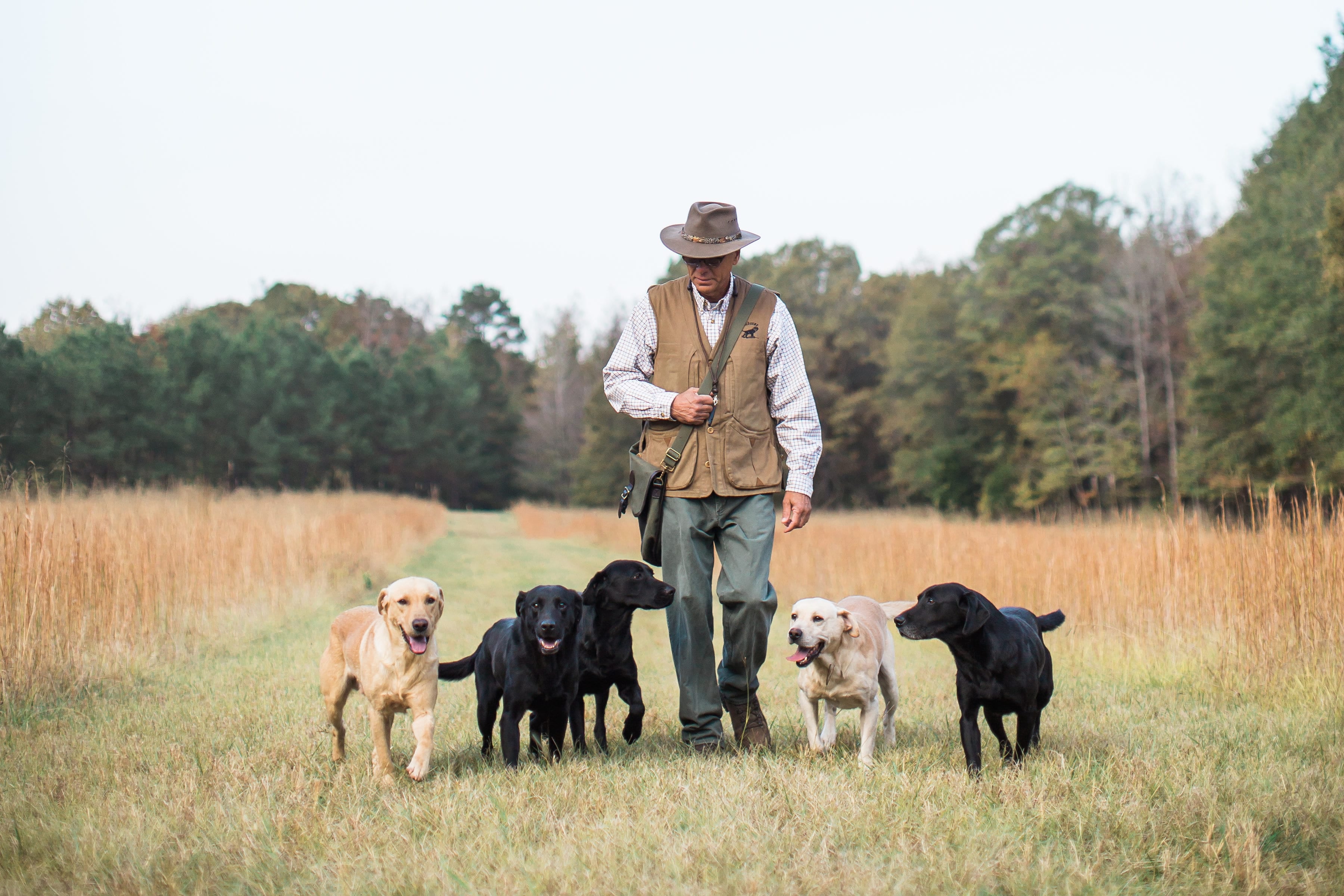
There’s a cemetery on the grounds of Wildrose Kennels. It’s covered in small tombstones engraved with the names of the outstanding gun dogs buried beneath them, dogs Mike Stewart trained and loved and eventually honored by giving them an eternal home at Wildrose.
It’s a fairly small patch of land, perhaps one of the only pieces of Mike’s sprawling 143-acre property that isn’t designated in some way to producing some of the world’s finest sporting dogs, but it is as peaceful of a resting place as anyone would want for their beloved pets or even themselves.
Mike’s an expert multitasker, something I learned within the first 30 seconds of meeting him. I wondered if he had forgotten about our appointment when I arrived at Wildrose for the interview because as I pulled in, he was walking out of an open-air kennel with a retriever on a leash.
When I asked if it was a bad time, he shook his head and said he’s always moving, always working, and you have to just kind of jump on the carousel to move along with him.
So I did.
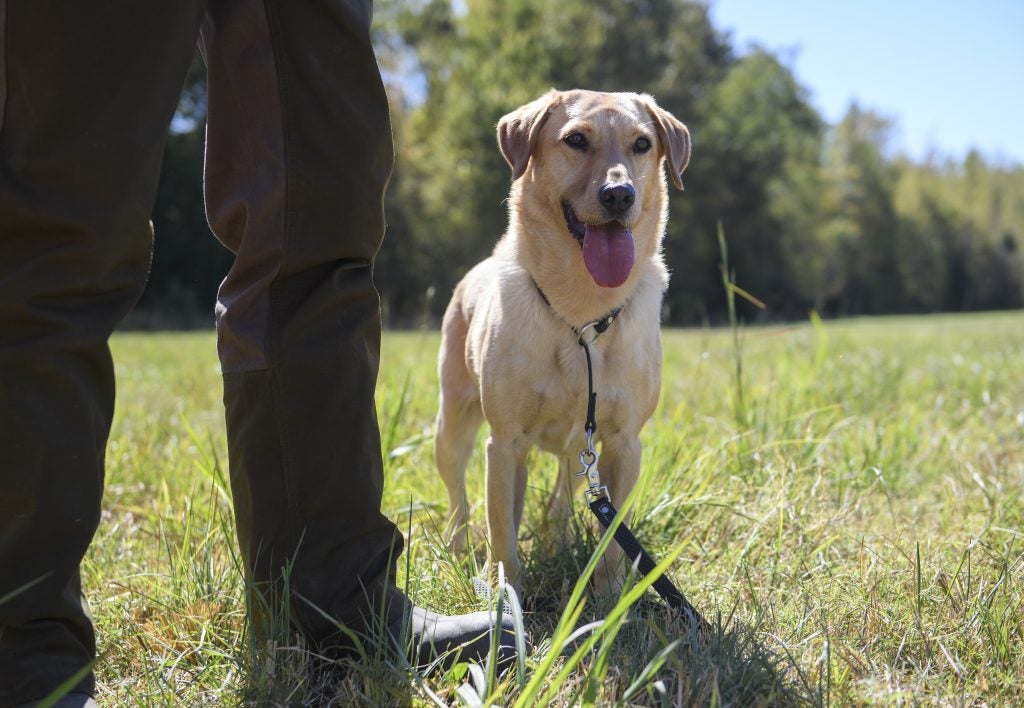
Wildrose Kennels in Oxford, Miss., Sunday, Oct. 9, 2016. (Photo/Thomas Graning)
Walking back into the kennel, we go down a line of some of the most beautiful and well-behaved dogs I’ve ever seen.
There’s Gusto, a beautiful retriever considered to be the up-and-comer among Mike’s top dogs. There’s Deke, the Ducks Unlimited mascot and perhaps the most visible Wildrose dog, his gorgeous black face landing on magazine covers and even representing Purina’s line of dog food created specifically for competitive canines. His predecessor, Drake, was the first DU mascot and arguably the first Wildrose mascot when the brand started gaining traction in the 2000s on Ducks Unlimited TV.
Drake embodied everything Wildrose represented, a highly trained animal with outstanding performance in the field and loyal companionship at home.
The dogs are why I’m here, of course. Because Mike, a retired police officer and former Ole Miss police chief, is more than a local man who’s pretty good at training gun dogs. He’s one of the world’s best at it, turning Wildrose into a multifaceted, multiplatform breeding and training facility with locations across the country.
We keep walking as I do a mental rundown of my list of questions regarding how he turned Wildrose into such a successful business. I wanted to know the ins and outs of the strategy, personal investment, plans for expansion, and so on. Numbers. Growth. And ultimately, if people are willing to pay more than $10,000 for a Wildrose dog, what makes them so exceptional?
Journalists, even feature writers, sometimes slip into a just-the-facts-ma’am mentality when interviewing, I’ve learned, missing the subtle cues and details that tell the real story, or at least the better one. We walked out of the kennel, and just as I was preparing to dive into the specifics of the Wildrose empire, Stewart removed his wide-brimmed hat.
That’s when I see the stones. The names. The tributes to dogs just as exceptional and just as cherished as the ones I had met moments before.
And that’s where I meet Drake, who died in 2013, his body draped in a DU flag before being laid to rest.
“This is the cemetery,” Stewart said. Not the dog cemetery or the pet cemetery or the animal cemetery.
When you strip away the details and timeline of Wildrose’s success, you start to really see the man behind it. And you see how important these dogs are to him. Not “dogs,” as in a nameless, faceless label containing every animal he’s ever bred or trained. Since he was a kid, every dog that’s crossed Mike Stewart’s path meant something to him. And knowing what they were capable of, he’s spent his life training them to be outstanding companions to the people who love them.
That’s the story I came to hear, whether I knew it or not.
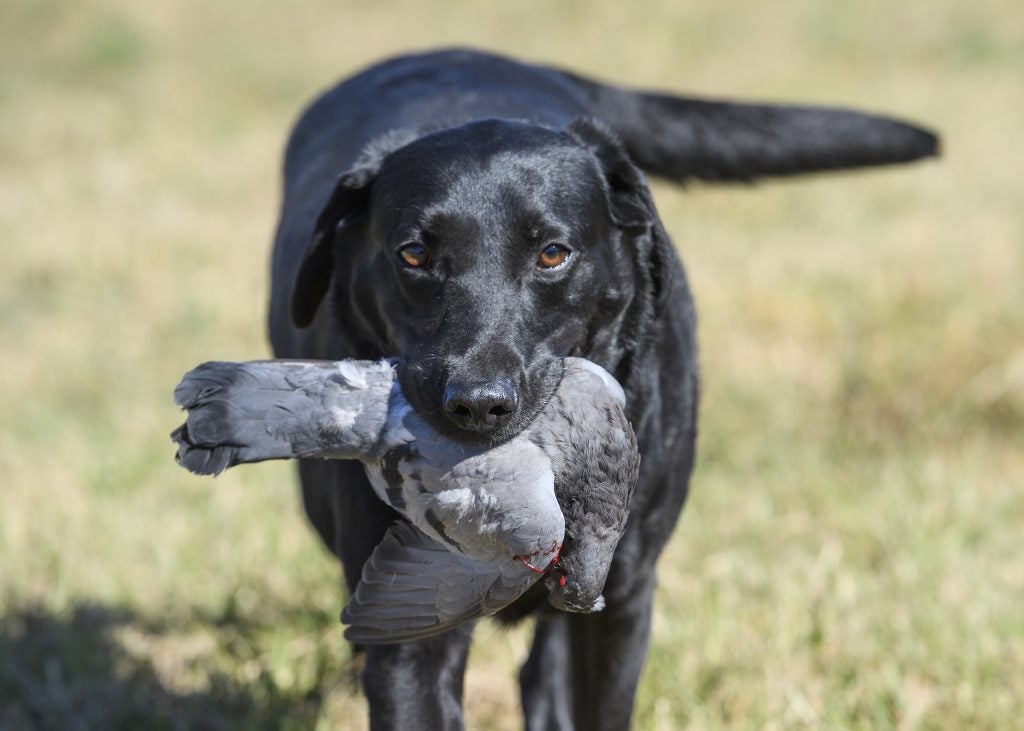
Wildrose Kennels in Oxford, Miss., Sunday, Oct. 9, 2016. (Photo/Thomas Graning)
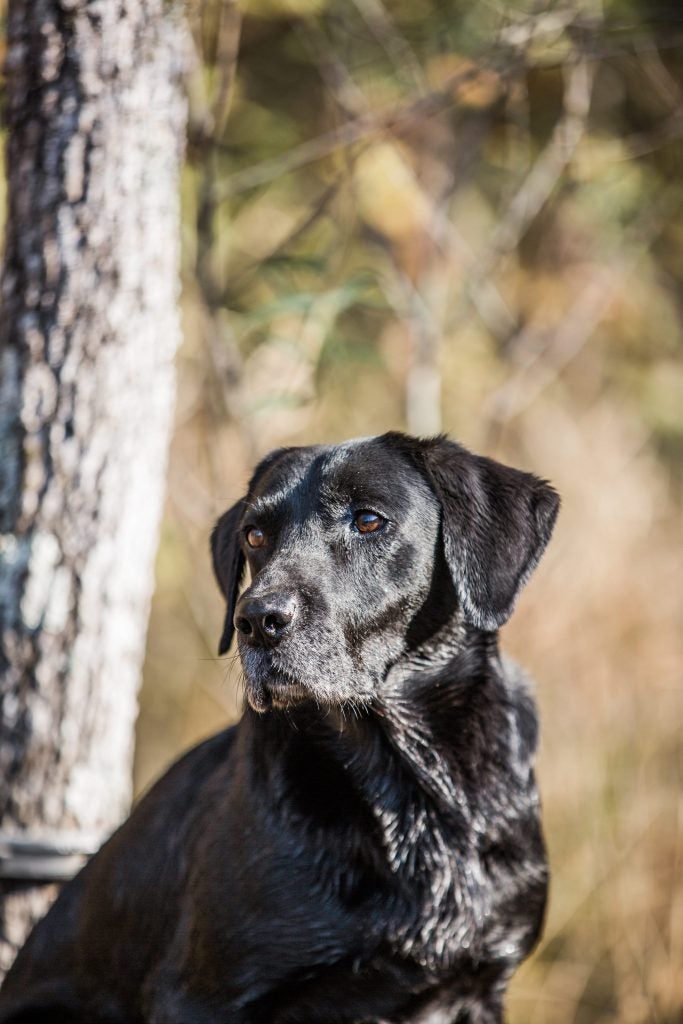
The seeds of Wildrose were planted in Mike’s childhood when he first developed an interest in training animals. His father trained horses, and even as a young man Stewart built a reputation among other animal owners who needed his help with behavioral issues.
When his dad asked what he wanted as a college graduation gift, Mike wasn’t interested in cash or a car.
Instead, he asked for a Llewellin setter – his first gun dog.
He began offering dog training for retrievers as a college student at Ole Miss in 1972, the same year a man named Robert Milner founded Wildrose Kennels, then a labrador training facility in Grand Junction, Tennessee.
Mike maintained dog training as a hobby of sorts as he pursued a law enforcement career in Oxford, working for both the city police department and later as police chief at the University of Mississippi until his retirement in 2000.
During that time he bought the 143-acre farm outside of Oxford, slowly but surely transforming it into what it is today. His passion had become a hobby, and his hobby had begun to lay the groundwork for Wildrose. And after buying the Wildrose name and assets a year before his retirement, he had everything he needed to turn his passion into a second career.
There’s a lot to unpack about everything Wildrose offers. At minimum, a few thousand bucks will get you an elite English labrador puppy from a superior bloodline. From there, depending on your needs, they can be trained to be versatile companions for specific needs.
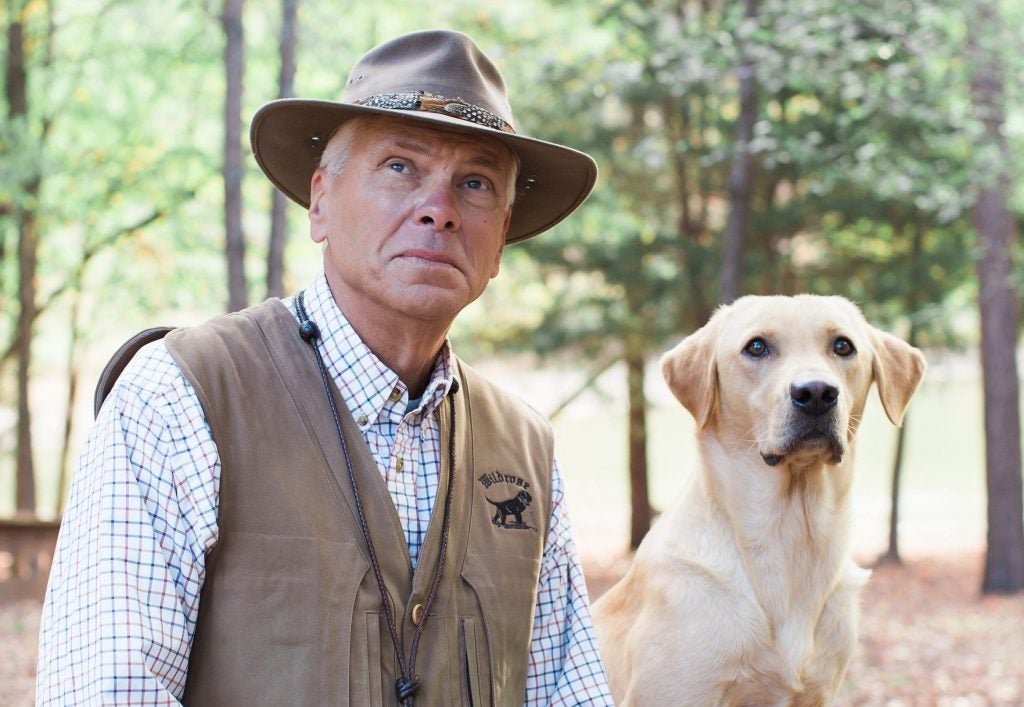
You have the Gentleman’s Gun Dog, Wildrose’s signature yield and ultimately what catapulted its fame beyond sporting circles and into the pages of Forbes and Garden & Gun. There’s an adventure dog, advertised as “the perfect complement to a family’s outdoor lifestyle,” and then there are dogs for other needs, specifically therapy service dogs and diabetic alert dogs, which can sense when a diabetic’s blood sugar levels reach dangerous highs or lows.
While the animals themselves might be versatile, the fundamentals of how they are trained aren’t all that different. And in Mike’s world, where gray areas are hard to find, it’s the fundamentals that count more than anything. For Mike, there is right and there is wrong, a correct way and an incorrect way, and it is this adherence to consistency and repetition with each dog he trains that makes the Wildrose method successful.
Retriever training should never come with the mindset of being a program, Mike says, which is usually tied to the linear concept of achievement levels and hitting a final goal.
Instead, it is a process of teaching and revisiting fundamental skills and behavioral lessons when needed, not unlike Nick Saban’s famously touted “process” he applies when coaching a football team. The basics build the foundation and there’s no other way to reach the goal in mind is to make sure the foundation is sturdy every single day. In other words, excellence doesn’t take a day off.
Part of that excellence, particularly when it comes to retrievers, demands the aforementioned superior bloodline.
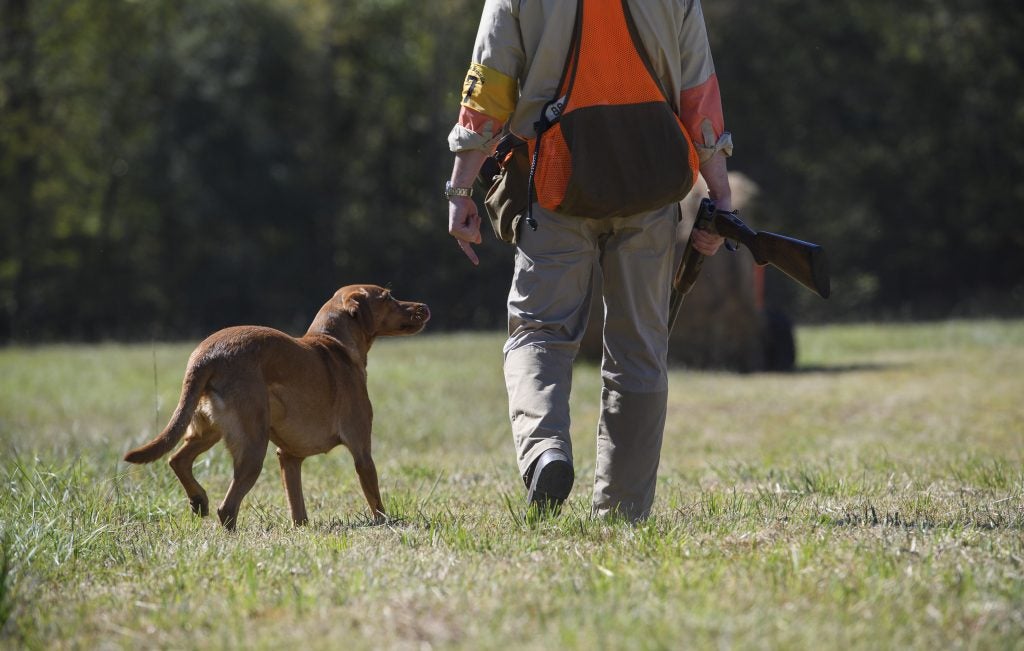
Wildrose Kennels in Oxford, Miss., Sunday, Oct. 9, 2016. (Photo/Thomas Graning)
When training labradors for any purpose, genetics plays a vital role. American retrievers have generally been bred for reasons of color or conformation, ignoring (and effectively smothering) the dogs’ natural game-hunting and retrieving instincts. Force conditioning is often employed when training these dogs to overcome deficient traits, which might result in a well-trained dog but does nothing for the bloodline.
English labs are bred to be superior hunters and companions. This doesn’t mean they don’t require training, but it does mean they’re significantly more trainable than their American counterparts because they’re bred for that reason. Two musicians can spend the same number of years practicing the same number of hours each day, but the same work isn’t likely to yield the same result if one of them is tone-deaf while the other has perfect pitch. The best training in the world cannot work alone (or at least not as easily) without certain natural traits needed for success.
While the concept of training is often tied to the idea of resistance or struggling to overcome one’s natural tendencies, the Wildrose method is rooted in conditioning the labs’ natural hunting and retrieving instincts through focus and concentration.
The importance of a gentle, non-forceful process matters to Mike. Structure and discipline are not inherently painful things. When done the right way, a retriever can be trained to do exactly what it was born to do, not what its master might want him to do.
And it’s easy to see everywhere you turn at Wildrose that there is nothing unnatural about these highly-trained creatures. They are not robots or otherwise emotionally sedated. They’re not unlike any other dog in terms of playfulness or affection; they are simply taught to tap into their own incredible focus and self-control in every situation.
If they veer from those lessons, it’s a matter of reinforcing the fundamentals, not trying to reinvent the wheel of how to train an animal.
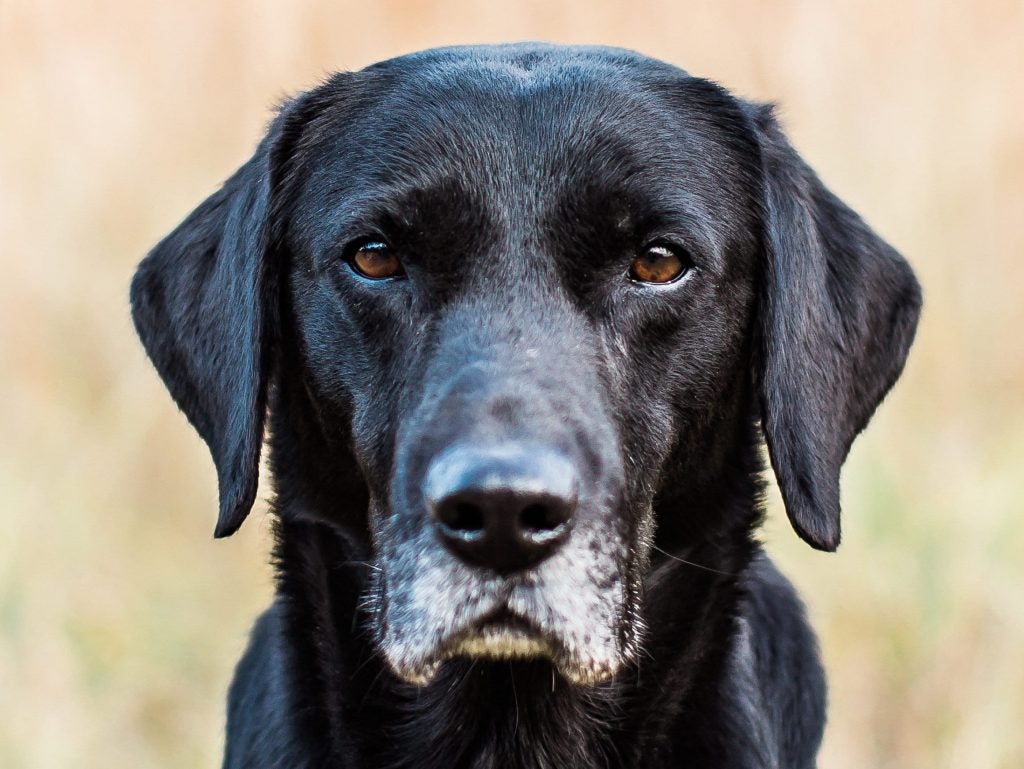
Mike’s patented “Wildrose Way” is the core of what makes this place, this brand, so successful and so widespread in popularity. And it matters for this reason: If he ever wavered from it, or started believing his success had more to do with his innate ability to do the job than the purposeful way he actually goes about it, there would be no plan of spreading the Wildrose Way far and wide by training others to carry it out.
Mike has no interest in being a one-man band. And as much as he has understandable interest in growing Wildrose into an even bigger and better resource for dog owners, the bigger interest is in the dogs themselves. When it stops being about the dogs, it loses importance. Still, it’s undeniable that Wildrose is what it is today because of who Mike is. And because of what Mike loves.
The secret to Mike’s success with Wildrose Kennels is there is no secret. It is simply the willingness to do things the right way every time and to do them with passion and intention or not at all.
“When you get up in the morning, what would you do for free? That’s what this is about.”















































